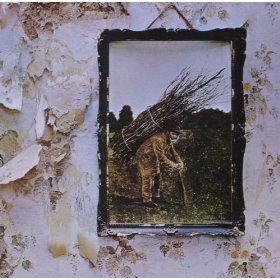Ask any die-hard Led Zeppelin fan about “Stairway to Heaven,” and eventually Bron-Yr-Aur will come up.
It’s the name of the remote cottage in Wales where the band, sitting fireside, wrote the song. At least, it’s where guitarist Jimmy Page has always said he wrote the song – a perfect image for a band obsessed with Celtic iconography.
What you likely won’t hear is Headley Grange, a now-closed recording studio in Headley, England, where bands like Fleetwood Mac, Genesis and Bad Company rehearsed and recorded.
Until now. During Jimmy Page’s testimony Wednesday in Zeppelin’s ongoing copyright battle with the band Spirit over “Stairway to Heaven,” Page admitted he didn’t write the song at Bron-Yr-Aur, pronounced “bronariar.” Instead, he wrote it elsewhere and first played it for his bandmates at the Headley Garage.
That might sound like a minor detail, but to Zeppelin fans, it’s akin to the levee breaking. Bron-Yr-Aur has been a destination for the faithful, a place of pilgrimage. The song’s origin story just went from storied to pedestrian.
Part of Zeppelin’s appeal has always been the lore surrounding its epic guitar rock, a fact the band always seemed to grasp. Celtic religious imagery is used in its famed “Zoso” symbol, and references to J.R.R. Tolkien’s “Lord of the Rings” trilogy pepper the band’s work. The first lines of “Ramble On” are a rough translation of a poem that’s written in the Elvish language Quenya, which was created by Tolkien. “Misty Mountain Hop” is even more straightforward – it was named for a place where Bilbo Baggins hangs out in “The Hobbit.”
Bron-Yr-Aur fits right into this mythology. The 250-year-old cottage in the Welsh mountainside overlooks the stunning Dyfi Valley. Zeppelin’s singer, Robert Plant, had stayed at Bron-Yr-Aur several times as a child and, after extensive touring in 1970, he suggested the band take a load off in the bucolic countryside, BBC reported.
The stone cottage lacked running water and electricity, which reportedly led Zeppelin to adjust its sound.
“Without any electricity to power big amplifiers, what they actually came up with was something which sounded much more acoustic and pastoral,” music journalist Jonathan Wingate said. “When you listen to it you just have to close your eyes and you can hear the echoes of this remote country house. It’s an album which you can imagine being performed around a crate of beer in front of a roaring log fire.”
The band wrote “Led Zeppelin III” at the cottage – the album even includes a song titled “Bron-Yr-Aur Stomp” – but, more importantly to many fans, Plant said he and Page had written “Stairway to Heaven” while sitting together in the cabin, fireside.
During the trial, a snippet from an old interview with Plant about writing the song at Bron-Yr-Aur was played.
“Jimmy and I just sat by the fire . . . Hawkwind was probably humming in the background,” Plant said, according to Mashable.
From the plaintiff’s complaint in the lawsuit:
“A year after touring with Spirit, Page allegedly wrote the most famous rock song of all time – ‘Stairway to Heaven’ – by fireside in a remote cottage in Wales called Bron-Yr-Aur; it was released in 1971.”
But on Wednesday, Page said he wrote all three sections of the song on his own and first showed it to his bandmates at Headley Grange, Mashable reported.
That doesn’t actively detract from the song itself, of course, but to the many fans who have journeyed to the remote cottage over the years, it’s likely a slap in the face. Fans from Japan, Italy, China and the United States have all hiked to Bron-Yr-Aur. Over the years, some of have broken in and stolen things, such as its sign (three times!), the BBC reported in 2007.
All for naught.
But, as the song itself states, “Sometimes all of our thoughts are misgiven.”
Of course, what’s on trial isn’t where the band wrote the song but if the band wrote the song. That remains to be determined.






